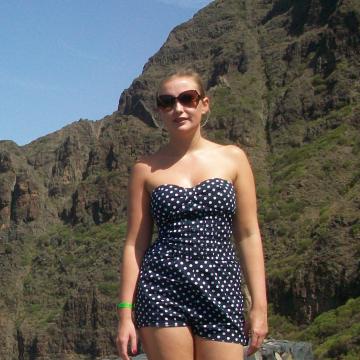Lauren Turrell

Lauren Turrell, who has completed her final year, talks about how she has found the course and Oxford.
'I always liked science and really enjoyed biology and chemistry too. So I decided that I wanted to do Biochemistry. We had a Biochemistry module within the Chemistry A' level class and I enjoyed that.
When I visited Oxford in my lower sixth year, I really liked it. It was a general open-day for the University. I came round the Biochemistry department when it was in the old building, and also to colleges, because I had never been to Oxford before then.
I noticed that there was quite a bit of maths on the course and I had really enjoyed maths but didn't take it as an A' level because it didn't fit in with my options. So I took up AS Maths in my A' level year and did that as well. I think it was quite good because the maths was fresh in my mind when I came here.
I applied to Worcester because previously a student from my school had applied there. However I was offered a place at St Hugh's. I was given quite a lot of help from my careers service and my biology teacher for my personal statement.
The interviews were college-based with people from the department who are associated with that college. The interviews were a bit daunting but OK. I didn't know what to expect, and we didn't have much preparation for the interview at school. We were told to try and read around the subject to show that you are willing to go that extra mile and that you are interested in what you are wanting to study. My interviews for other Universities were much less formal than Oxford.
I came straight here and didn't take a gap year. The first year was quite a lot of work and we had deadlines most days of work to hand in, but I really enjoyed it. I think the year gives you a good broad basic understanding of the field. You have practicals every Friday, and then you have classes, tutorials and lectures. The tutorials are college-based, whereas the classes are departmental-based which is very good because you get to know people on your course.
I struggled a bit more with some of the topics than others, but it evens itself out in the end. It's quite independent learning and you have to take the initiative to look stuff up yourself. The exams come round quickly but are done quickly too.
The second year was probably the best year as there were no exams – the pressure's off a bit. Up to end of the third year, the courses are all compulsory. So you get a very good grounding in Biochemistry .
In my fourth year, I did a research project in Dr Ervin Fodor's laboratory in the Dunn School of Pathology on influenza virus which I really enjoyed. You work from 9 to 5 in the lab and then you have the evenings and weekends to relax. It's an 18-week project followed by an 8000 word dissertation. You have a viva on the project where you have to present your work and you are then questioned about it.
I had also done some lab work at Reading University during the Summer at the end of my second and third years. If you want to go on to do a PhD, you need to get some lab experience. I wrote to Reading University because I live locally to there, and I ended up working in Dr Ben Neuman's lab.
I knew I wanted to stay in science because I really enjoy it. I really enjoyed the research I completed in my Part II, so I decided that I wanted to do a PhD. I've got a place at the Dunn School of Pathology to study for a PhD for 4 years in the lab in which I did my Part II project. To take up the place next year I'll have to get a 2(i) degree.
I'll be going to Toronto in July to work in a lab there, looking at lung transplantation, which I got through Oxford Careers Service. It's an international internship programme. I'm doing that for 2 months this Summer because I just wanted to do something different and gain more lab-based experience before I return to Oxford.
I've enjoyed Oxford a lot and have made some amazing friends. I played netball for college, I was the captain in my second and third year, and I also helped a charity called 'Hands up for Darfur'. I was events director and we organised a 'cirque du soir', like a royal variety performance, at the Oxford Town Hall. I did that in my second year which ended up taking up a lot more time than I realised but it was really enjoyable. You definitely do have time to do extra-curricular activities you just have to manage your time well. I also really enjoy formal hall and the whole college system, it works really well.
If you want to do something that's going to challenge you and also provide you with a broad background in science, Biochemistry is a very good subject to do. In terms of advice when you are here, I'd say that you should make sure you organise your time well and stay on top of things. Ask for help when you need it, and you'll be fine.'




